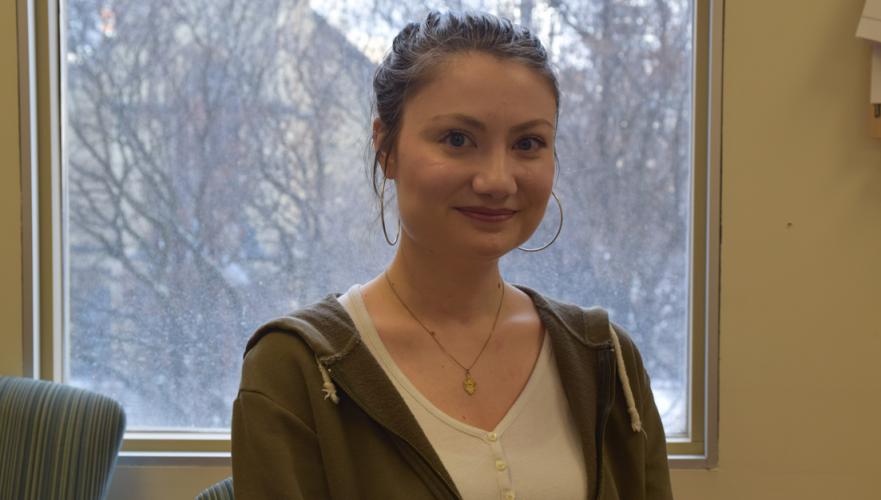
In downtown Toronto, street nurse Roxie Danielson is meeting with new clients at a shelter. Sitting at a small table and equipped with a surgical mask and face shield, Danielson is separated from them by plexiglass. She is conducting her assessment and goes through some standard questions. Do you have a primary care provider? What supports or community resources would you find helpful? What are your specific health needs? If they ask to be connected with a social worker, primary care provider or chiropodist, Danielson will book an appointment with the Inner City Family Health Team clinic, an organization made up of nurses, physicians, psychiatrists, chiropodists and social workers dedicated to providing multidisciplinary primary care to persons experiencing homelessness in Toronto. It’s a group she’s been part of for seven years.
With the arrival of COVID-19 more than a year ago, it’s become difficult for Danielson’s clients to get quick and easy access to health care. Since last March, her team’s primary care clinic has had to reduce in-person hours due to restrictions. Most appointments are done virtually, which means those who do not have phones do not have access. In addition, some community services such as drop-in or meal programs, as well as addiction support groups, have been suspended, which has taken a toll on this vulnerable population.
“Because people are not getting that close follow-up in person (contact) like they used to, a lot of clients are getting sicker and dying because of it,” says Danielson.
According to Toronto’s Shelter, Support and Housing Administration Division, the city reported 74 shelter resident deaths in 2020, an increase of 54 per cent from the previous year. Data collected to the end of June 2020 found seven per cent of those deaths were linked to COVID-19. Forty-seven per cent were unknown or pending. Danielson worries these numbers will get higher as overcrowding continues in shelters.
Because people are not getting that close follow-up in person (contact) like they used to, a lot of clients are getting sicker and dying because of it.
Roxie Danielson
At the end of February 2021, 10 of the city’s 53 shelters had ongoing COVID-19 outbreaks and more than 150 cases. Since the beginning of the pandemic, Danielson has seen first-hand that many Toronto shelters are at full capacity. They do not have the space to ensure proper physical distancing is followed, forcing people to sleep in overcrowded spaces, notes Danielson. There is also no room in the shelters to isolate anyone who might be sick, and masks are not always available to shelter residents. “For the folks in the shelter, they’ve told me many times they feel unsafe,” she says. “I’ve had clients specifically tell me that they’ve left the shelter to sleep outside…because they’re scared of getting COVID-19 in the shelter.”
For a long time, RNAO has advocated on behalf of people experiencing homelessness, pushing for more protections and better access to timely health care. In April 2020, at the height of the first wave of COVID-19, RNAO advocated for and welcomed the creation of COVID-19 isolation facilities by the Inner City Health Associates, a group of 200 nurses and physicians offering health services to Toronto’s homeless. This group, along with the City of Toronto, provincial government funding and a number of community health partners and social service agencies, created isolation facilities for members of the homeless community waiting for their COVID-19 test results and to care for those recovering from COVID-19. RNAO’s VIANurse program played a central role in helping to staff the facility with highly qualified RNs and NPs who work closely with RNAO member Dr. Leigh Chapman, who serves as the clinical director at the isolation sites.
“RNAO’s commitment to vulnerable populations precedes this pandemic and will continue forward, as we tackle together the social inequities exposed and deepened by the virus,” RNAO CEO Dr. Doris Grinspun wrote in her blog on Jan. 23, 2021.
Like Danielson, nurses in many cities across the province are leading important initiatives to help vulnerable populations through the pandemic.
Ottawa NPs Cynthia Kitson, Sara Perron and Leslie Dewsnap are members of Ottawa Inner City Health (OICH), which, pre-pandemic, began providing primary care from a new mobile clinic van in December 2019. With the arrival of COVID-19, the mobile clinic has turned into a COVID-19 testing van for vulnerable people in the community.
RNJ ACCESS
You are only one quick step away from full access to all RNJ content.
Already an RNAO member? Log in
